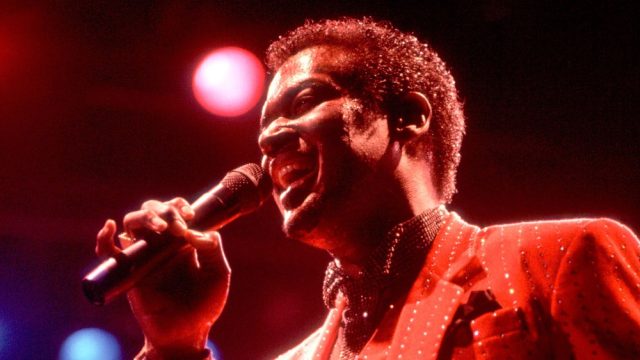Although it isn’t structured any differently from dozens of other cradle-to-grave documentaries about artistic luminaries, “Luther: Never Too Much” sheds light on much more than just the life and career of R&B singer Luther Vandross. Drawn largely from interview and performance footage of Vandross over his almost 40 years in entertainment, and bolstered and contextualized by retrospective talks will collaborators and confidantes, director Dawn Porter’s film exposes some uneasy truths about the music industry and the media we may now know, but whose seeming ubiquitousness at the time he was alive may be difficult to fully comprehend.
White audience members in particular may stand to learn the most about him — a fact Porter pointedly attributes to the genre siloes of radio’s heyday and cultural prejudices against black singers who weren’t thin or light-skinned enough to receive the opportunity to cross over from R&B to pop. Yet he began his career on projects with exactly the kind of broad appeal to which he wasn’t later granted access: performing on “Sesame Street,” singing and arranging vocals on David Bowie’s “Young Americans” album and crafting advertising jingles for products such as Miller High Life and Juicy Fruit gum.
Crediting himself as one of the first “real singers” to emerge from disco, Vandross wrote, arranged and produced songs for a variety of the artists who inspired him, from Dionne Warwick to Barbra Streisand to Aretha Franklin, before joining their ranks in 1980 as a solo performer. (Even those who are knowledgeable about his career will marvel at the breadth of his footprint and the laundry list of artists he worked with.)
Appropriately, the film showcases not just his supple, muscular, versatile voice but the parade of hit songs he generated in the 1980s and ’90s, starting with the documentary’s eponymous “Never Too Much,” ensuring a future surge in streaming numbers for his body of work. What becomes more powerful as the story of his life progresses, however, is the media’s fixation on Vandross’ weight, and subsequent, sensationalist attributions of its fluctuations to unanswered questions about his sexuality. Though the media has to some extent learned some lessons about the boundaries of appropriateness with regard to interrogating public figures (not to mention health and body image), it becomes clear in Porter’s film that shame over what about him the world could see led to fierce privacy about what they couldn’t.
Your heart breaks along with former personal assistant Max Szadek’s as he describes how he realized that “Any Love,” the song Vandross considered his most personal, in fact reveals how desperate the singer was for romantic companionship. The film is measured in its treatment of his much-speculated-about sexuality — undoubtedly one of the bombshells many viewers might have hoped to come away with — and interviews with those who knew him, including Valerie Simpson, bass player Marcus Miller and songwriting collaborator Richard Marx, make respectful rather than revelatory disclosures.
The fact that he was nicknamed “Dr. Love” by his legion of fans for his aptitude for getting people in the mood seems in retrospect a cruel irony for the man who, though surrounded throughout his life by friends and collaborators who adored him, was never able to be open about the kind of love he himself sought, much less found it.
The other theme that runs through the film is his ambition as a performer and the way that the recording industry stymied his efforts to become a full-fledged pop star. In an era when “crossing over” was an aspiration to be resisted by white-dominated pop charts and criticized by the Black community, Vandross unashamedly, and repeatedly, attempted to make a hit big enough to put him among the ranks of Michael Jackson and Prince. Consequently, it was only after nine attempts that he won his first Grammy, almost 30 years into his career (and a new contract with Clive Davis’ J Records) that he received the support he wanted in escaping what became the stigma of being considered an R&B artist, and another five after that to achieve a Billboard No. 1 pop song (for “Dance With My Father”).
To that end, Porter skillfully emphasizes just how much material he left behind, and offers generous enough snippets of it that her film feels simultaneously like biography and a musical anthology, a primer and invitation to explore him further. Sadly, Vandross was one of too many soul music legends who passed away at a much earlier age than they should have — including Otis Redding, Donny Hathaway, Curtis Mayfield, Marvin Gaye and Teddy Pendergrass. Each died from markedly different causes, but each of their talents burned brightly, uniquely, and influentially, and this film evidences why Vandross deserves an equal place alongside them regardless of how far his career extended into what we’d consider the modern era of R&B. Not only did he presage the romantic and sexual yearning of New Jack Swing and its subsequent musical tributaries, but his now-classic scale-climbing on the microphone made it possible for artists like Whitney Houston, Mariah Carey and Beyonce to unleash their full vocal range on the pop charts.
An early interview clip discusses how he idolized and studied Aretha Franklin, who could absolutely knock out an audience even while performing “in neutral,” without seeming to push herself, and the observation is key to the style and power that was synonymous with him as well. If anything, “Never Too Much” shows just how hard Luther Vandross worked to make his natural and irresistible talent seem effortless. That it took longer than he’d wanted to achieve certain results, not because of his shortcomings but the prevailing cultural forces of the time, is just one of many takeaways. But for many, the biggest will be just how prophetic is the title of Dawn Porter’s documentary, because after the first time you really hear Vandross sing, you won’t be able to get enough.






















